In the first seconds of the enemy attack on Odesa on November 18, when there were many killed and wounded in the city and great destruction, Andrii Medvediev, a member of the National Union of Journalists of Ukraine (NUJU), arrived at the scene. He immediately began to record the utter horror that the courtyard of a peaceful neighborhood of high-rise buildings had turned into and to help the victims. This is not the first time that Andrii has worked at the sites of enemy strikes, documenting the consequences of strikes for the Odesa Union of Journalists of Ukraine. After all, Odesa is under attack by suicide bombers and ballistic missiles almost every day. The journalist is convinced that the war will end, and evidence of the criminal actions of the russian aggressor should serve to punish those who give murderous orders. Andrii spoke about his work that day and what he saw in an interview with the NUJU.
“Around 12, I was on the street near the Odesa Union of Journalists of Ukraine,” Andrii said. “I saw the missile falling; I understood from the trajectory where and when the impact would be. The ground shook under my feet. I rushed forward… 30 seconds later, I was at the impact site in the courtyard among the high-rise buildings. There was a lot of smoke; cars were burning; rescue sirens could already be heard in the distance….”
One of the first moments I remembered was a woman dressed in a Nova Poshta uniform, she was screaming, crying, she was shaking all over. I hugged her, trying to relieve the acute stress. To distract her, I asked where she had been and if she was injured. Little by little, the woman calmed down. In parallel, I filmed everything that was happening around.
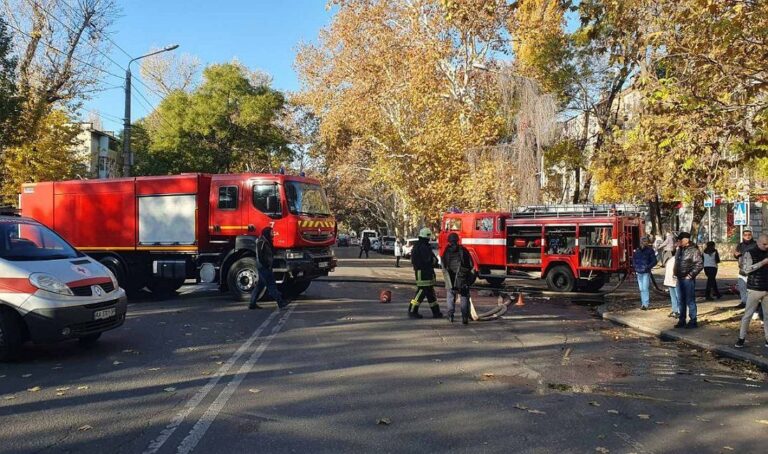
At first there were few people in the courtyard, and then many residents in panic began to jump out of their apartments. One guy and I rushed to the man who was lying on the asphalt, but he was no longer breathing… Rescuers and medics arrived. I still remember how a woman ran out of the apartment, throwing on a towel; she must have been taking a bath, and her body was cut by shrapnel, and blood was seeping from the wounds. I know that shrapnel wounds cannot be bandaged, so I helped the medics with tamponade.
“Andrii, do you know the rules of first aid? Have you had to use them before?”
“More than once. I took a first aid course. My hometown is Kherson; I am a member of the city council. When the war began, I found myself under occupation for almost half a year. We rallied there and helped the victims during shelling, in bomb shelters, and bought medicine.
I constantly filmed videos and posted them on my page on a social network. And then two men from our team were kidnapped right off the street. One was in captivity for 74 days, the other for 52. Both miraculously survived. After their disappearance, I decided to get out of the city, bypassed enemy checkpoints with detours, but I also had to fall under strict filtering, pretended to be a simpleton, that I understood absolutely nothing about the processes that were taking place… I did manage to leave the Kherson Region.
I started volunteering in Odesa. For the Odesa Union of Journalists, I promptly document facts, and we have collected a large archive about the criminal actions of the russian occupiers. By the way, the certificate of a member of the NUJU helps a lot in my work; I have access to the territory where high-profile events are taking place.
“You said that after thirty seconds, you were already at the place where the ballistics hit occurred. Did you think that you were taking a risk, there are repeated attacks…?”
“Of course, there are. But, I repeat, I have experience of six months of occupation in Kherson, and in Odesa, there is also unrest almost every day. I try to protect myself. But I can’t help working either. And I’m not saying this for the sake of a fine word… That’s what happened on November 18. After the rescue operation began, I decided to go into the building where the walls had collapsed and everything was filled with smoke. I understood that there was a risk, so I was filming as carefully as possible. And at that time, loud explosions were heard from the street, at first I thought that something was coming again, and then I realized that those were the cars that were exploding…”
“What do you focus on when working in such conditions?”
“I turn off my emotions; that’s the first thing. I tried to focus on work. However, I didn’t succeed in such a “switching off” right away. I remember walking past a multi-story building in Kherson, and the air raid siren blared. But somehow, no one really reacted; there were elderly women sitting on a bench near the entrance, and people were hurrying about their business. Suddenly, a strong explosion shook everything around me, and my heart almost jumped out of my chest. When I recovered, I saw all around the torn bodies of those people who had been sitting on the bench a moment ago, a lot of blood… Everything was like footage from a scary movie. Then I realized that the plots of war films are taken from life… That’s why I try to document everything meticulously. I look at how I can help people. Returning on November 18, I will add that I drew attention to the following fact: people were leaving the entrances; someone was holding a suitcase with one hand and with the other hugging a basket with a cat towards him; they were also carrying a cage with a parrot. There is so much burning, crying, devastation, wounded and killed all around, and – a cat and a parrot in people’s arms… I think that is why we are so resilient, that we know how to love, care for, and support each other, and not even abandon our smaller brothers in trouble…”
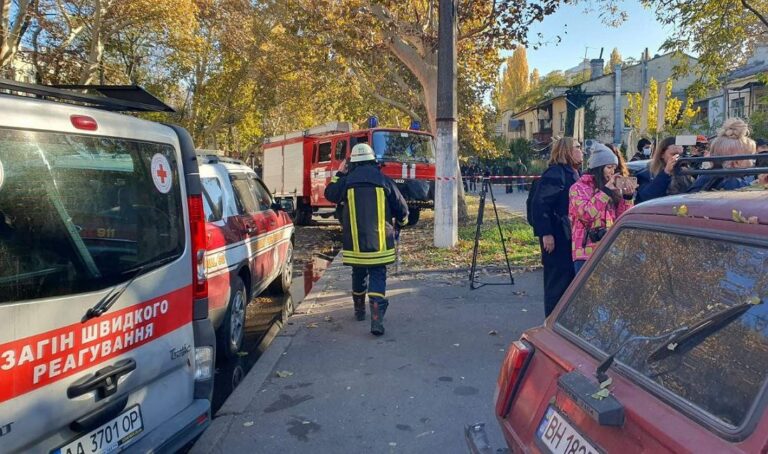
On November 18 at 11.57, the enemy attacked Odesa with a targeted strike on civilian infrastructure. Ten people were killed, 55 were injured, dozens of buildings were damaged, hundreds of apartments were damaged, cars were on fire… Yurii Rabotin, the head of the Odesa regional organization of the NUJU, tells the story.
“That day, at about 12, I was returning from a working meeting to our office. I was just about to open the front door when a very strong, deafening explosion rang out; everything around me shuddered… Glass fell on me, and a large flower pot flew from the third floor. The instant reaction of the former military man worked, which allowed me to avoid the debris.
The blast wave broke out windows in neighboring buildings, screams were heard nearby, smoke was everywhere, cars were on fire… Later, the seconds of that explosion were permeated with thoughts and feelings; poetic lines came that contained the experiences. The “arrival” occurred about two hundred meters from the building where the Odesa Union of Journalists is located. When everything calmed down a bit, we started cleaning our premises.
Odesa is constantly suffering from russian attacks; the most painful thing is the human losses… There is often no electricity; after the attack on November 18, there was no electricity for more than a day. Such are the realities of our life. But every day, the doors of the Union of Journalists are open from 9 am until late in the evening. Journalists, creative Odesa residents, and public figures gather here to share plans, think, and discuss what worries or inspires them. We also have a volunteer center that provides assistance to internally displaced persons. There are many things to do; life must go on,” notes Yurii Rabotin.
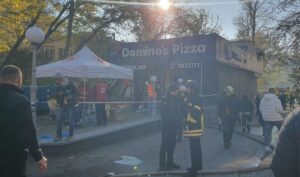
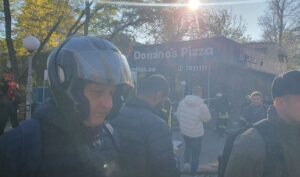
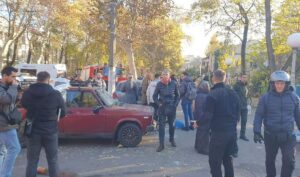
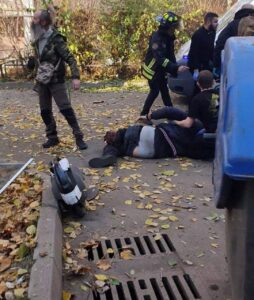
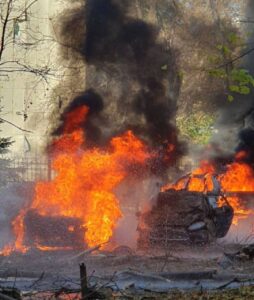
Liudmyla Maznova

 THE NATIONAL UNION OF
JOURNALISTS OF UKRAINE
THE NATIONAL UNION OF
JOURNALISTS OF UKRAINE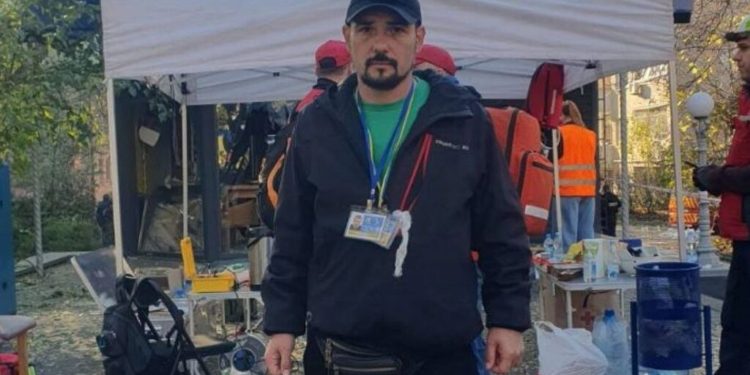
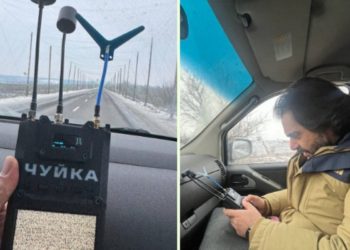
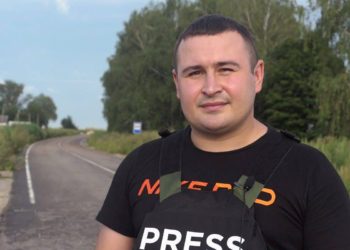
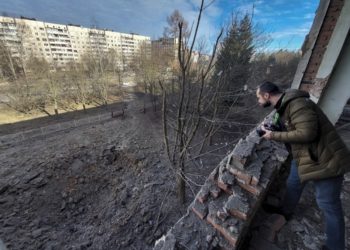













Discussion about this post